In this article
While cats are generally well-behaved, sometimes their conduct can cause you to think,” My cat is a brat,” especially when there’s aggressive behavior involved. Aggression is a normal survival behavior in cats. It allows them to defend themselves, establish boundaries, and protect resources, but it becomes a concern when it is misdirected or excessive. Cats frequently become aggressive due to stress, anxiety, and fear, and it’s essential to identify what’s prompting your cat’s behavior so you can make a few adjustments to keep your buddy happy and calm.

Signs of an Aggressive Cat
Cats typically use vocalization and body language to get their points across. Riled-up felines often have dilated pupils and flattened ears, and when cats are particularly irritated, their tails become puffed up. Vigorous tail thwacking can also indicate that a cat is on the verge of becoming aggressive.
Cats sometimes growl and hiss when scared or seriously aggravated, but growling is also seen in situations where cats wish to convey defensive or territorial intent. Scared cats can bite or scratch people and other animals when pushed and not allowed to go on their way; most cats attempt to hide or get away before things escalate. Aggression is typically a last resort when escape is not possible.


Are There Situations That Can Trigger Aggression?
A few situations are commonly linked to feline aggression, including fear, territoriality, redirected aggression, unwelcomed petting, and when playtime becomes a bit too exciting.
1. Fear
Cats sometimes react fearfully when exposed to people, animals, or places they aren’t familiar with. Loud noises can also be a trigger. Cats can respond by scratching or hissing when someone they don’t know gets too close for comfort. Fear-based aggression is defensive in nature and should be managed by reducing exposure to the stressor and using desensitization and counterconditioning techniques under veterinary guidance.
2. Territoriality
Aggression can result when cats’ territorial instincts are triggered, which sometimes happens when they have to adjust to the presence of a new animal or person in their domain. Some owners may think spoiled cat behavior contributes to their pet reacting negatively to a new roommate, but most cats aren’t fond of changes and take a while to adjust. Gradual introductions, scent swapping, and providing separate resources help reduce territorial stress.
3. Petting
While cats enjoy being cuddled and petted, they sometimes want to be left alone and can grow tired of even the most enjoyable snuggles. Cats get irritated when petting goes on for too long, and they’re not allowed to go about their business peacefully.
They can also become annoyed if they don’t like the way or how they’re being touched and handled. Cats prefer being petted gently on their backs, shoulders, and heads; most don’t enjoy their tails and paws receiving human attention. They can also react sharply to friendly pokes and pats from small children. This is called petting-induced aggression and is a common, normal feline response when overstimulated.
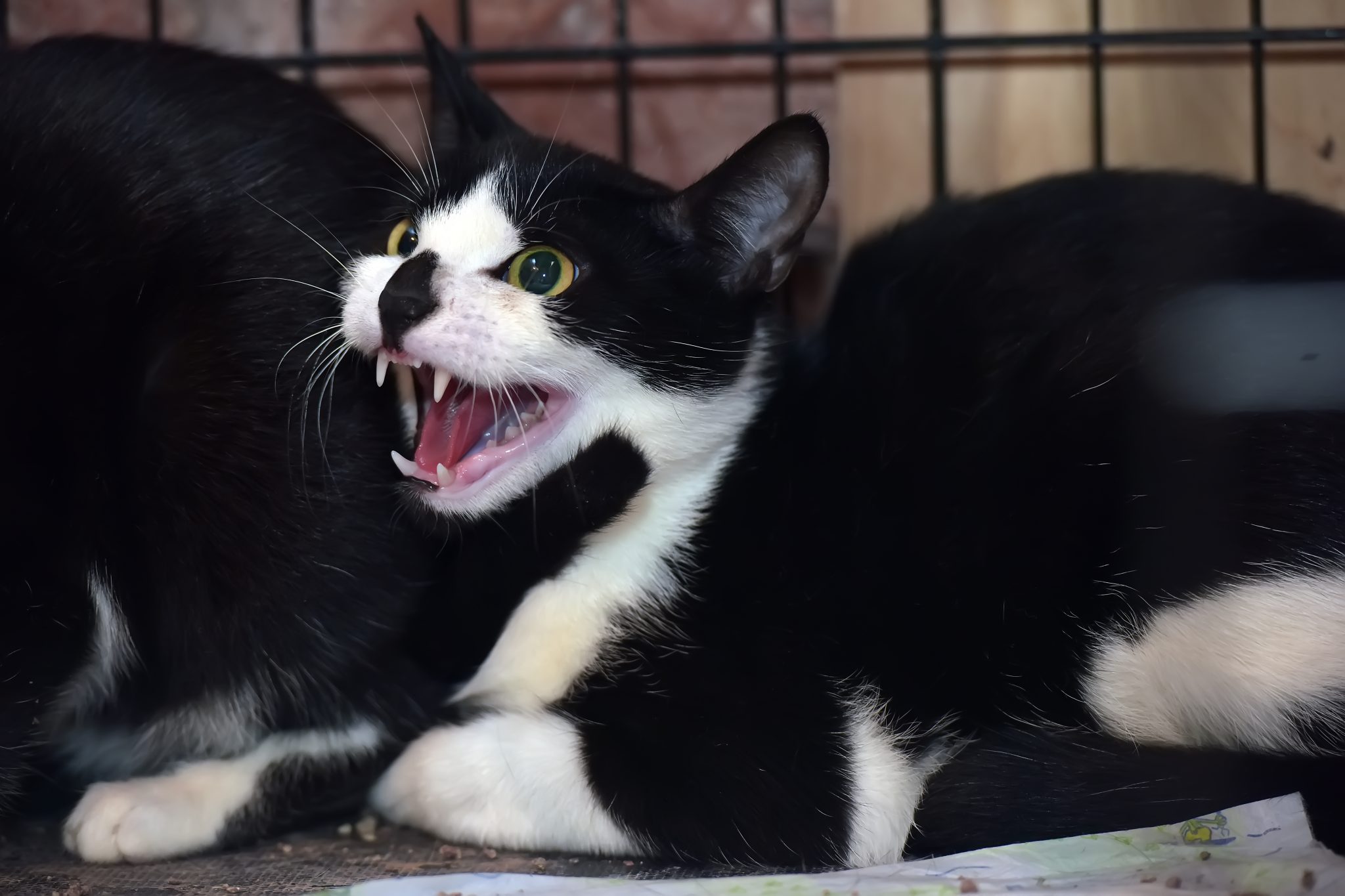
4. Play
Cats can get a bit carried away when they’re playing, which can result in conduct that crosses the line. Overenthusiastic play is most often seen in kittens and younger cats. Play aggression occurs when cats haven’t learned appropriate bite inhibition. Redirecting to toys and structured play helps prevent injury.
5. Resources
Tension can result in multi-cat homes when cats feel the need to compete for access to resources such as litter boxes, food and water bowls, toys, napping spots, and attention. This can often be prevented by following the “n+1 rule,” meaning to provide one resource per cat plus one extra.
6. Pain
Dental pain, infections, and arthritis can all cause normally calm cats to become more aggressive. Cognitive decline and neurological issues can also be triggers of aggression. Because cats hide discomfort well, any sudden onset of aggression necessitates a veterinary examination to rule out pain-related causes.
7. Hormones
Unaltered male cats can be more aggressive than their neutered counterparts, and female cats can become less tolerant when they’re in heat. Spaying and neutering reduce hormonally driven aggression and help prevent territorial spraying and fighting.

Are There Ways to Encourage Slightly Mellower Feline Behavior?
Yes. Providing cats with private places to hang out, giving them toys to enjoy, and ensuring they get plenty of exercise are all great ways to support cats’ overall well-being. Veterinarians can provide guidance on behavioral modification techniques, environmental enrichment, pheromone therapy, or medication if needed to help cats calm down. Spaying and neutering intact cats are often all that’s needed to address hormone-related aggression.
If you need to speak with a vet but can't get to one, head over to PangoVet. It's an online service where you can talk to a vet online and get the advice you need for your pet — all at an affordable price!

Private Space
Cats need comfortable spaces where they can get away from it all. A cardboard box with a blanket is more than enough to keep many cats who live alone happy, but those living in homes with other animals or small children benefit from having a quiet room where they have a place to nap, food to snack on, and toys to play with when in need of a time out.
Mental and Physical Stimulation
Ensuring that cats get enough play time to get rid of their spare energy can reduce their tendency to jump out and attack people walking by. Giving them toys and activities to enjoy and increasing their mental and physical stimulation helps decrease play-related aggression. Interactive play sessions that mimic hunting behavior (stalk, chase, pounce) are especially effective.
Multiple Resources
Providing at least one resource per cat, plus an extra for good measure, can reduce the tendency to battle over access to the basics. If you have two cats, it’s best to have three litter boxes to prevent conflicts, and you can increase the time you play with each to prevent your cats from competing for your affection. Separate feeding areas and resting spots also help reduce social tension.


Should I Be Concerned if My Cat Suddenly Starts Acting Aggressively?
Because behavioral changes are often the first signs of illness in cats, a veterinarian must see your cat if they suddenly start peeing outside the litter box, eating more or less, or behaving aggressively. Medical problems should be considered as potential causes of sudden-onset aggression. These causes include hyperthyroidism, neurological disorders, dental disease, or pain.

Conclusion
Aggression is a natural part of being a cat, but it’s less desirable when it leads to biting, chasing, and scratching. It can be caused by fear or stress, but you can reduce it by identifying what is bothering your cat. However, a health condition can also lead to aggressive tendencies, and you should talk to your veterinarian if your cat’s behavior suddenly changes. With proper diagnosis, environmental management, and, when needed, behavioral therapy or medication, most cats with aggression issues can return to calm, confident companions.
Featured Image Credit: Mary Swift, Shutterstock


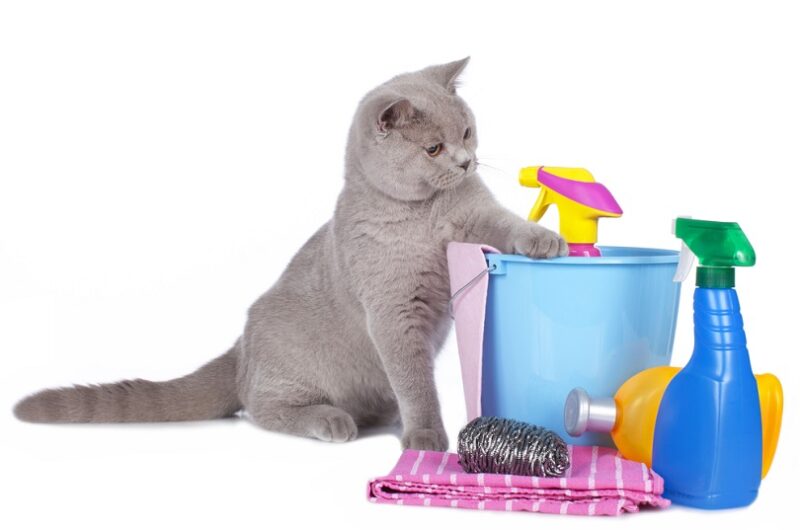
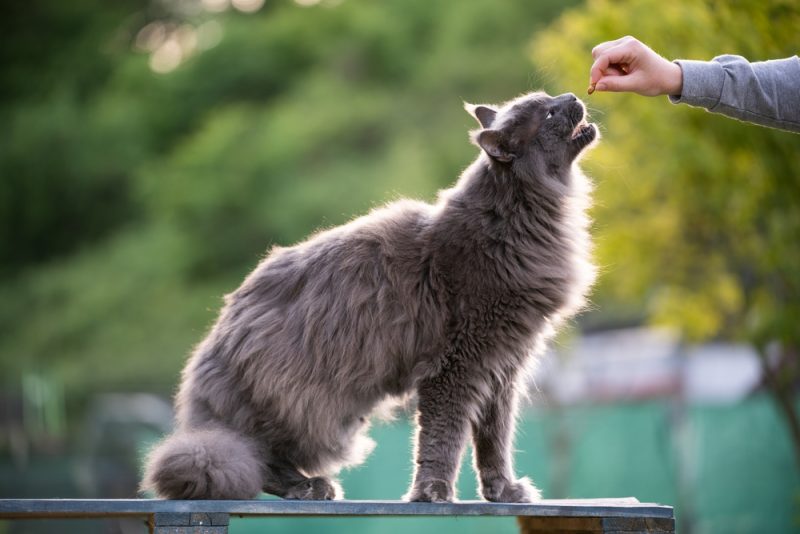




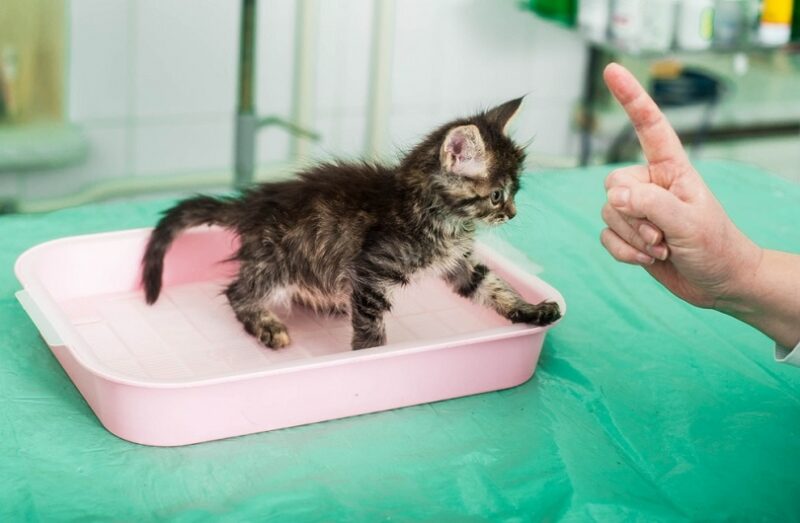


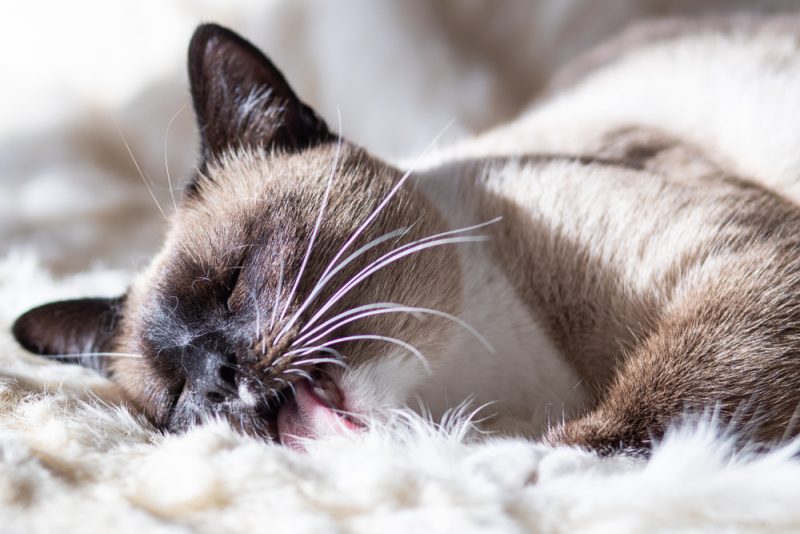

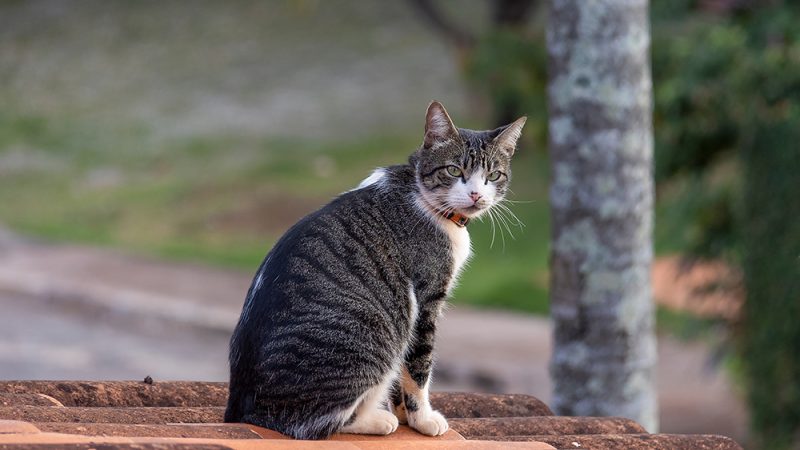


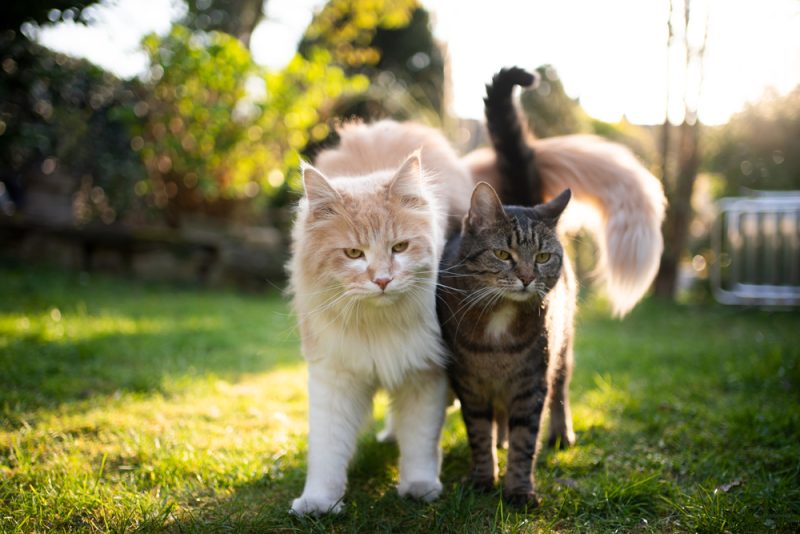




2 Responses
My two cats live in the same house together; one of them is the son and the other one is his mother. They live in the same house together and aren't typically separated, they have different but nearby feeding areas, two different litter boxes, plenty of places to perch throughout the house, and lots of toys just lying around. We try to play with them sometimes, but they don't really do anything. Every day the son always just attacks his mother multiple times throughout the day without reason. They have of course been living together since he was born, and the son was still blind and def when he was brought to our house. So, he has lived here his whole life pretty much. However, this behavior has persisted for more than a year. Whenever we see it, we do what we can to break them up without getting hurt. If we approach after the fight the son will run away because he knows that he's in trouble, but we don't chase him. When they fight, they have their claws out, we know because we have found random scratches on them, we don't often find them, but we know it happens. They are both adult cats now and have been for a few years, this is not a new behavior. We think it may be boredom, but as stated earlier, he won't play with his toys or with us. What do we do?
You can try adding a multi-household synthetic pheromone diffuser in your home. Additionally, a consultation with www.pangovet.com can help you go through the specifics of your cats’ case and environment and help you make a tailored management plan to address this.